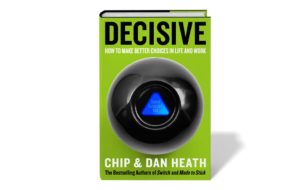Navy SEAL veteran Jocko Willink wakes up at 4:30 a.m. every single day. You may have seen his popular video on Business Insider in which he explains the benefits of such an early start and why others would do well to adopt this habit.

“Just on a practical side, if you wake up early in the morning — like at 4:30 in the morning — you’re going to have some free time to yourself to make things happen,” says Willink. “It’s not fun to get out of bed early in the morning. When the alarm goes off, it doesn’t sing you a song, it hits you in the head with a baseball bat. So how do you respond to that? Do you crawl underneath your covers and hide? Or do you get up, get aggressive, and attack the day?”
Point taken.
This routine and mindset has propelled Jocko not only to a decorated military career, but to successful ventures as an author, speaker, and leader in general. To argue whether or not he would have the same résumé if he woke up at 5 instead of 4:30 is irrational. It’s equally irrational, however, to assume that since Jocko’s routine worked for him, it can work for everyone else, too.
Tim Ferriss hosted Jocko on his podcast earlier this fall to discuss the topics of discipline and leadership. It’s a must listen and I highly recommend it. Jocko is one of hundreds of influencers whose advice has been distilled into Ferriss’ mammoth of a book, Tools of Titans. Ferriss has realized a key point, however, that he touched on during his Talk at Google: there is no secret formula for routines. You just need to have a routine – one that’s both consistent and effective.
It seems as though once anyone succeeds at something through a specific process or strategy it’s quickly adopted by others and becomes codified, often to everyone’s disappointment when it doesn’t replicate the same results.
I would imagine that a decent chunk of the people who listened to Jocko’s advice actually attempted to wake up at 4:30 that same week only to find themselves unable to sustain the habit. This is not because of laziness or a lack of discipline, but because waking up at 4:30 isn’t tailored to their specific needs.
The problem lies not in the idea that we are unmotivated, but that we believe there is a blueprint for success, for wealth, for happiness. The author Robert Greene puts it best:
“The world is full of people looking for a secret formula for success and power. They do not want to think on their own; they just want a recipe to follow. They are attracted to the idea of strategy for that very reason. In their minds strategy is a series of steps to be followed toward a goal. They want these steps spelled out for them by an expert or guru. Believing in the power of imitation, they want to know exactly what some great person has done before. Their maneuvers in life are as mechanical as their thinking.”
You’ve seen it before: X celebrity shares their secrets that allow him/her to achieve X, Y, and Z! We follow these steps blindly while ignoring our individual strengths and weaknesses. In a culture of immediate gratification, this kind of static thinking is a recipe for frustration when immediate results aren’t achieved. How much better off would we be if we used these influencers’ advice to inspire our routines as opposed to taking them as gospel?
The opportunists, creatives, and leaders of today stand out not because they replicate formulas but because they are able to focus relentlessly on the present moment – on what suits them best. The greatest routine is the one that produces the best you, no matter what that entails.
As Abraham Lincoln said: “My policy is to have no policy.” Steady yet nimble; disciplined yet fluid.
Like to read? Make sure you get the list of 5 books to base your life on, plus 11 writing lessons from iconic authors. Just let me know where to send them. Enjoy!
 will you feel about the guy who cut you off in traffic in 10 minutes? 10 months? 10 years?
will you feel about the guy who cut you off in traffic in 10 minutes? 10 months? 10 years?